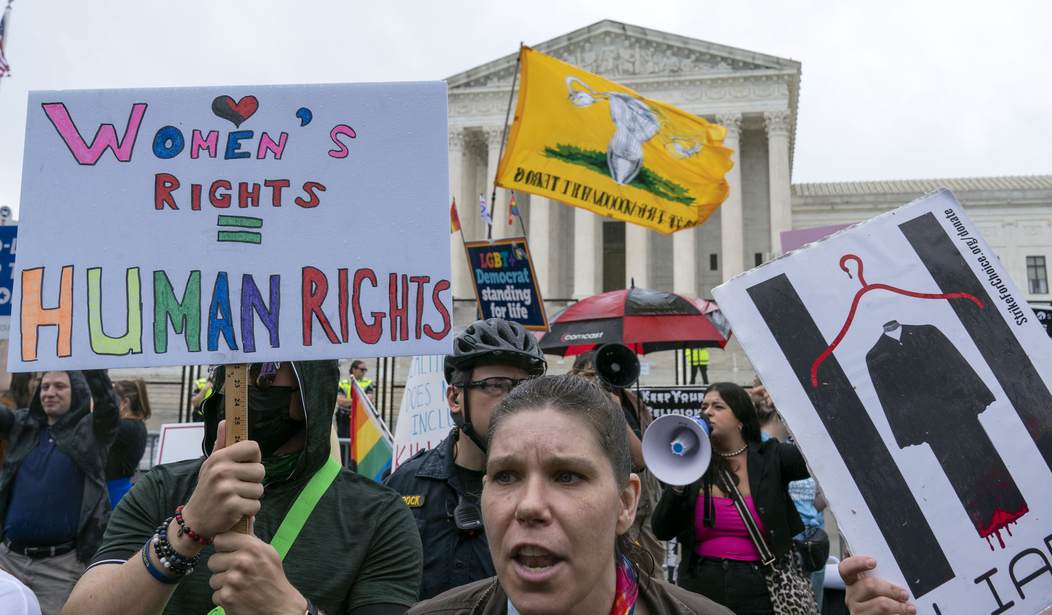The United States Constitution and the Bill of Rights afford all Americans unalienable rights that no one can take away. The First Amendment states, “Congress shall make no law respecting an establishment of religion or prohibiting the free exercise thereof; or abridging the freedom of speech, or of the press; or the right of the people peaceably to assemble, and to petition the Government for a redress of grievances.” These rights to free speech and peaceful assembly are two foundations on which our great Nation was built.
Peaceful protesting has been the foundation of change for many issues throughout America’s history. Just over 100 years ago, on March 3, 1913, thousands of women traveled to Washington, D.C., to march along Pennsylvania Avenue and advocate for what is now known as the 19th Amendment. Although this amendment had been first proposed 35 years prior, their march brought new energy to the cause and helped push equality across the finish line and guarantee women the right to vote.
Another prominent instance of peaceful protest started on December 1, 1955, when Rosa Parks refused to give up her seat on a bus to a white passenger. Parks was arrested, and mere days later, a boycott was organized. With African Americans comprising more than 70% of bus patrons in Montgomery, Alabama, the boycott took only one day to force city leaders to acknowledge their frustration. This boycott began the Civil Rights Movement led by Martin Luther King, Jr., where civil disobedience was their primary tool of action.
These examples, and many more, have been taught to us and our children to demonstrate that the best way to get something done is through peaceful means. However, in recent years, America has seen a shift toward political violence when there is perceived injustice.
In 2020, violent protests broke out across the country following the death of George Floyd.4 The rule of law disintegrated in cities like Minneapolis, Los Angeles, Seattle, and Washington, D.C., where windows were smashed, businesses were looted, government buildings — including the White House — were under siege, and citizens were injured during the riots. During the 2 weeks when these riots were most prominent, billions of dollars in property damage was incurred, and 19 people lost their lives.
Recommended
We face a problem as a Nation when those who feel they are the subject of injustice turn to violence instead of peaceful means. Law and order were established in this country for a reason. The rule of law is indispensable to our Nation. However, our citizens cannot be secure in their rights if crime, including crime disguised as protest, plagues our streets and lawlessness dominates our communities. The law shows no favoritism, regardless of politics or cause. It applies equally to those who rioted following Floyd, entered the Capitol on January 6, or illegally protested or threatened the lives of Supreme Court Justices adjacent to Dobbs.
Recently, threats of riots and violence have increased following the decision in Dobbs v. Jackson Women’s Health Organization. After a draft opinion was leaked last month, there were a series of attacks on the pro-life movement, pregnancy resource centers, and even an assassination attempt against a Supreme Court Justice. Following the official release of the decision, several Justices had to be moved to undisclosed safe locations due to the amount of violent rhetoric directed toward them. For decades since the Roe precedent was set, we have seen thousands of Americans travel to Washington, D.C., to protest in the annual March for Life peacefully. It is my hope that, given the shift in precedent, those who disagree with the decision will follow the brave example of my fellow pro-life citizens.
In any society that continues to evolve, grow, and learn, people will undoubtedly be upset by change, progress, and decisions made by all branches and levels of government. Throughout our history, we have seen that sometimes those who are upset have every right to be. Often, these groups utilize peaceful assembly and go on to see meaningful action taken in their favor. However, we know in America that not every protestor on the street is correct. We must rely on the leaders we elect to differentiate this. Whether you agree with the cause or not, it is essential as a country to continue listening and creating meaningful dialogue with those we do not agree. Those who engage in this dialogue often create the most meaningful and substantial results for our society. Our history has proven that.
Our Nation prides itself on its commitment to freedom. Freedom of speech, press, religion, and peaceful assembly are fundamental rights for which men and women have fought and died. We must continue to put America First by respecting the rule of law in our great Nation — and those who demonstrate peacefully.
Matthew Whitaker serves as America First Policy Institute’s Co-Chair of the Center for Law and Justice. He previously served as Acting Attorney General of the United States during President Donald J. Trump’s Administration.

























Join the conversation as a VIP Member